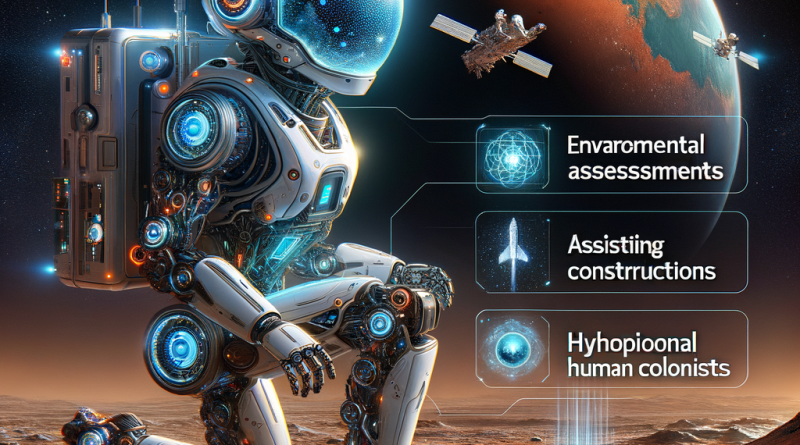Elon Musks Optimus Robot Heading to Mars in 2026 What It Means for AI and Space Exploration

“`html
Elon Musk’s Optimus Robot Set to Explore Mars: What This Means for the Future of AI in Space
In a groundbreaking announcement, Elon Musk has revealed that Tesla’s humanoid robot, Optimus, will be embarking on a journey to Mars in 2026. If successful, this mission could mark a pivotal moment in the fusion of artificial intelligence (AI) and space exploration.
The Role of Optimus in Space Exploration
Optimus is set to play a crucial role in SpaceX’s vision of colonizing Mars. Designed with advanced AI, Optimus will be tasked with:
- Conducting initial environmental assessments
- Assisting in automated construction and setup for human colonists
- Testing its AI learning capabilities in space conditions
Optimus will be boarded onto SpaceX’s Starship, a fully reusable spacecraft engineered for interplanetary travel.
Challenges for AI and Robotics Beyond Earth
While AI has made significant advances on Earth, applying it to a completely different planetary environment presents several key challenges:
| Challenge | Potential Solution |
|---|---|
| Extreme temperatures | Heat-resistant materials and adaptive AI algorithms |
| Communication delays | More autonomous onboard AI decision-making |
| Lack of atmosphere | Specialized sensors and stabilization technology |
What Does This Mean for the AI Industry?
The Optimus mission signifies a broader shift in how AI can be leveraged for scientific advancements:
- AI’s role in space travel could aid in autonomous decision-making and problem-solving.
- It could accelerate the development of humanoid robotics for real-world applications.
- Potential ripple effects across industries, from construction automation to environmental simulations.
Europe’s Investigation into Huawei’s Alleged Corruption
In other major tech news, Huawei has been at the center of controversy with European authorities conducting police raids on their offices.
Key Allegations:
- Huawei is accused of bribing European Parliament officials.
- Authorities have confiscated documents and digital evidence.
- Huawei has denied any wrongdoing.
If proven guilty, this could lead to stricter tech regulations in Europe, affecting Huawei’s plans for 5G infrastructure expansion.
Implications for Global AI Ethics
At the same time, Google and OpenAI have formally requested exceptions from U.S. copyright laws to train AI models using copyrighted materials. This has sparked wider discussions on AI ethics, data privacy, and fair intellectual property use.
Looking Ahead
As AI continues to evolve and find its way into more innovative applications, including space exploration, the legal and ethical considerations will only grow more complex. Optimus’ journey to Mars could be the stepping stone for future interplanetary AI missions, potentially revolutionizing human’s role in space.
Stay tuned as we follow these exciting developments in AI, space, and global innovation.
#AIinSpace #ElonMusk #OptimusRobot #FutureTech #SpaceExploration #AIethics #Huawei #GoogleAI
“`
